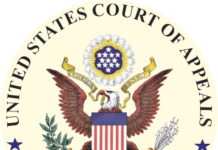Johnson County District Judge David Hauber said he will rule by the end of Tuesday whether to grant a request to delay his order declaring the state’s new emergency management law unconstitutional and unenforceable.
Kansas Attorney General Derek Schmidt is asking for a stay of the ruling to allow for an immediate appeal to the Kansas Supreme Court although the judge questioned whether some of the state’s issues could have already been addressed.
Hauber’s ruling struck down the state’s new emergency managment law, which gave residents the ability to go to court to challenge health orders issued by the state, local governments and school districts.
Hauber focused on those court challenges in ruling that the law deprived the government of due process while also violating the separation of powers between the judicial and legislative branches.
Schmidt argues that ruling affected seemingly unrelated parts of the law, namely the ability of leading lawmakers on the Legislative Coordinating Council to extend any disaster emergency issued by the governor.
The ruling “has the potential to create all sorts of new and novel legal issues that we believe are, frankly, unnecessary under the circumstances of the case,” Solicitor General Brant Laue argued in a 20-minute hearing Tuesday morning.
“There have been inquiries about what is the status of Kansas emergency management law in the wake of the court’s decision,” Laue said. “What fills the gap to having SB 40 being declared unconstitutional?”
The law gives the governor the power to call a 15-day state of disaster emergency and gives the LCC the power to extend it for multiple periods of 30 days.
The LCC’s authority under the law also extended to disaster emergencies related to domestic animals, plants, raw agricultural commodities, animal feed or processed food.
Given the court’s ruling, Laue asked whether the state would have the power to respond to an outbreak of animal disease in western Kansas.
Laue said it would be expected that the state would revert to prior law although it potentially could be argued there is no law on the books to respond to an emergency.
Hauber, however, expressed skepticism about the state’s claims, especially since he gave it opportunities to articulate its position on what parts of the law that could be severed if they were declared unconstitutional.
Hauber said the state had least two chances to the address the question of severability and didn’t before seeking a stay of the court’s ruling.
“I asked you to address that and then you didn’t address it,” Hauber told Laue. “Is there a reason you didn’t address it?”
Laue said he thought the state’s arguments were overwhelmingly in its favor that it didn’t take up the issue of how unconstitutional parts of the law could be severed.
“If the statute was not unconstitutional, there was no need to even think the court should reach the severability issue,” Laue told the judge.
Hauber said the state has a post-trial option of asking the judge to clarify his order. He said the state had 28 days to file a motion seeking a clarification.
The case comes at a time when COVID-19 is making a resurgence as the delta variant is increasingly spreading and leading to new health protocols.
The Shawnee Mission School District argued that it — and other school districts — would be harmed by a delay as they face the potential of responding to the rise in COVID-19 cases as the delta variant of the virus spreads.
The district argued that delaying the order would allow the law – “replete with constitutional violations” – to remain in place and hobble its ability to respond to the spread of the COVID-19 delta variant.
If the number of COVID-19 cases continues to escalate and the delay is granted, a new state of emergency may be declared that could immediately resurrect provisions of that law that the judge ruled unconstitutionally encroached on the judiciary and violated the due process rights of government defendants.
On Monday night, the Shawnee Mission school district decided to require its elementary students to wear masks this fall.
The district’s legal counsel, Rachel England, argued while the state is asking for narrow relief what it’s really seeking is something much broader in a way that would harm the school district with continued unconstitutional violations.
“We think that’s improper and that it would allow for continued constitutional violations and remove the protections of the court’s order,” she said.
In declaring the new law unconstitutional, Hauber homed in on sections that allowed Kansans to challenge health orders in court.
State, local governments and school boards, under the law, were required to hold a hearing on any grievance brought against a health order within 72 hours.
Any civil action brought within 30 days of the hearing must be heard in court within three days, as well.
The law says a judge “shall grant relief” unless the court finds that the order was narrowly tailored to respond to an emergency in the least restrictive way possible.
A judge had seven days to rule. If the court didn’t issue a ruling in seven days, the plaintiff would be granted a judgment in their favor.
The law also provided the same grievance process for orders issued by cities and counties. It also applied to community colleges and executive orders issued by the governor.
The judge found that while the law was developed under the “guise of giving local governments the authority to address specific pandemic issues,” it actually “hobbled” their efforts by enacting legislation that would ensure lawsuits would be filed.
Hauber took particular aim at a provision of the law that declared a judgment in favor of the plaintiff if a decision wasn’t reached in seven days.
“It is difficult to fathom what the drafters of SB 40 used as a legal template for this default provision which seems to be unprecedented in the law,” the judge wrote.
“There may be numerous reasons a judge may not be able to get a decision out in seven days, whether there are more emergent cases, an unforeseen calamity or even the ability to research and issue a reasoned opinion.”















